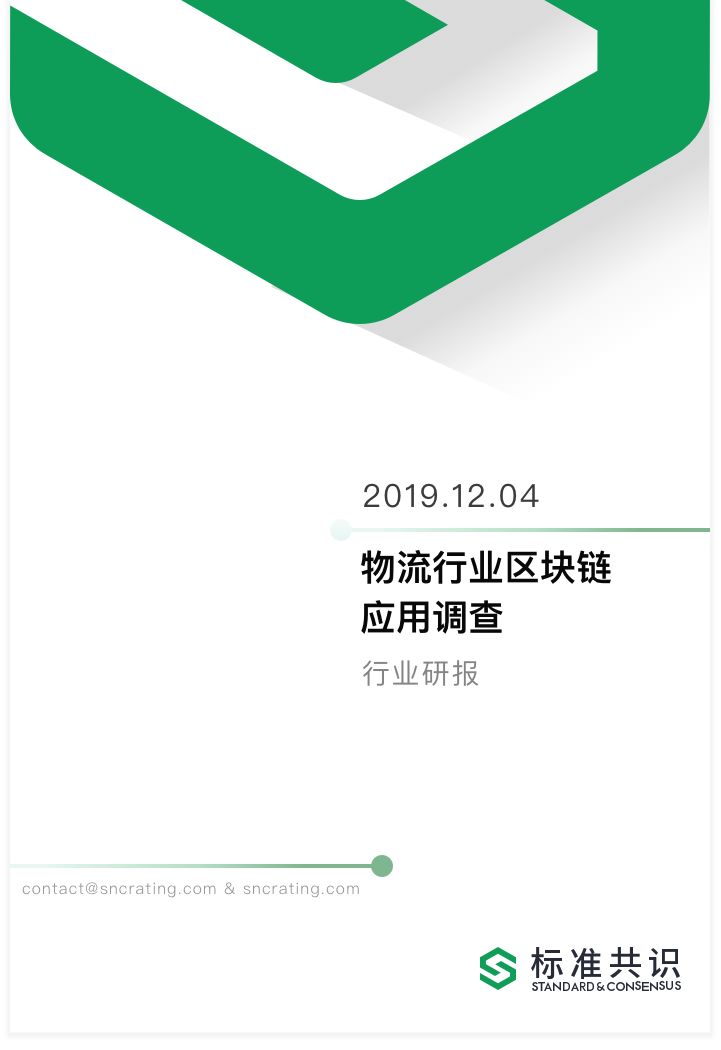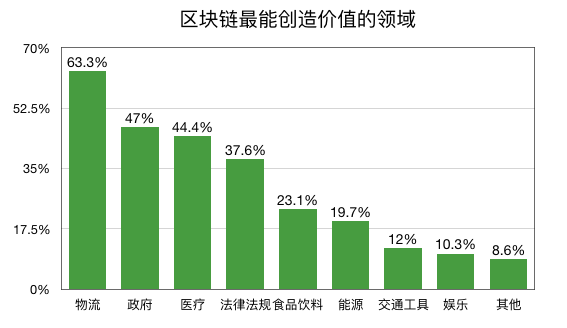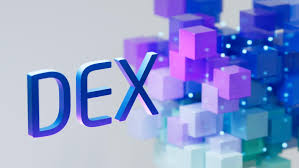Research Report | The Status Quo of the Application of Blockchain in the Logistics Industry and the Three Challenges Facing the Landing

Overview
This article will explore the enabling concepts and examples of blockchain in global trade logistics, supply chain transparency and traceability, and business process areas in logistics. At the same time, this article will explain the current difficulties and challenges in the last part.
Report
Status of the logistics industry
Complex and inefficient information flows in international trade
Logistics is generally considered to be the lifeblood of today's society. 90% of the international trade volume of the annual transportation business is undertaken by the shipping industry. However, the logistics behind global trade is complex because it involves many parties that often have conflicts of interest and priorities, and uses different self-developed systems to track the status of shipments. Therefore, improving the efficiency of trade logistics can have a significant impact on the global economy. According to a World Economic Forum statistic, reducing supply chain barriers could increase global GDP by nearly 5% and global trade by 15%.
Today, there is a great deal of stranded value in logistics to be discovered, which is largely due to the fragmentation and competitiveness of the logistics industry. For example, in the United States alone, it is estimated that there are more than 500,000 individual shipping companies, and China has more than 700,000 shipping companies. Due to the large number of participants involved in the supply chain, this usually results in low transparency, irregular processes, data silos, and different levels of technology adoption. Many parts of the logistics value chain are also constrained by manual processes required by regulators. For example, companies must often rely on manual data entry and paper-based documentation to interface with customs procedures. All of this makes it very difficult to track the provenance and status of goods as they move through the supply chain, leading to friction and stagnation in global trade. An example that highlights the complexity behind today's ocean freight is that it is estimated that simple refrigerated cargo transportation from East Africa to Europe will pass through nearly 30 organizations and individuals, with more than 200 different interaction and communication standards among these parties. Communication and tracking are complex.
- Viewpoint | Rather than technological breakthroughs, asset chaining requires more institutional building
- IMF Liu Yan: Legal definition of digital currency is the basis of regulation
- 4D long text explains the latest development of Ethereum
 Source: Accenture
Source: Accenture
Blockchain technology empowers the logistics industry
Blockchain technology can help alleviate many frictions and stagnation in global trade logistics, including procurement, transportation management, tracking and tracing, customs cooperation, and trade financing. Maritime transport involves more than 94,000 merchant vessels, and the passage of goods by multiple customs controls. The main focus area for improving efficiency is shipping. Blockchain technology has great potential to optimize costs and the time associated with administrative processing of trade documents and marine cargo.
PricewaterhouseCoopers surveyed the top three areas with the most promising applications of blockchain technology. The top three are logistics, government projects, and medical. Logistics, as the most natural and leading industry in the application of blockchain technology, is a consistent choice for ordinary users and professionals.
 Source: PwC
Source: PwC
The characteristics of blockchain technology such as decentralization and smart contracts can help empower the logistics industry to reduce costs and improve logistics efficiency.
Decentralized
Blockchain can help overcome these frictions in logistics and achieve substantial improvements in the efficiency of logistics processes. The blockchain uses its distributed ledger feature to digitally record the transaction history between the parties. Information is stored in each block. Each block added to the chain is date stamped, it is unique and encrypted, which makes it immutable and naturally cannot be forged. Therefore, anyone with access to the chain can trust the data on the chain. This technology also enables transparency and access to data between relevant supply chain participants, creating a true single source. In addition, the inherent security mechanism of blockchain technology enhances the trust required to share information between participants. Once you have a foundation of trust, it will be more conducive to business operations.
For example, in international trade, logistics and transportation involve many aspects. Transactions and documents are executed and saved for each shipment, including bills of lading, invoices, proof of delivery, and more. Every transaction will become a permanent ledger record, and anyone who has access to this chain can easily verify it. Using data from the blockchain, members within the blockchain network can verify the blocks of a transaction, thereby creating a transparent and efficient system to manage all documents and transactions involved in logistics and supply chain processes.
Smart contract
Blockchain technology can help companies implement smart contract computer code hosted on the blockchain, which can define and enforce the terms of agreements between the parties. Smart contracts are more practical because, like traditional contracts, they can be agreed upon by at least two parties. Therefore, even though the blockchain may require 30 participants to make it valuable, any two participants on the platform can sign a smart contract, while the other 28 participants cannot see it.
The basic structure and performance of smart contracts make them very good at accelerating and simplifying many functions and processes in the logistics industry. These benefits of implementing smart contracts in logistics will make their utility in the industry obvious. For example, a company wants to pay a shipping company after the goods arrive at their destination. You can create a smart contract, and the contract will automatically transfer the money once the package reaches the specified GPS coordinates. Current paper supply chain systems are extremely inefficient. Industry estimates indicate that about 10% of all freight invoices carry and provide inaccurate data. This caused a lot of disputes and led to inefficient processes in the supply chain and logistics. Using blockchain, smart contracts can completely eliminate the need for all of these management steps, thereby cutting costs and radically eliminating all possibilities for error. Accenture expects annual freight costs to fall by at least 5% if it improves invoice accuracy and avoids overpayments. Considering that administrative costs account for nearly 20% of total transportation costs, the impact of using smart contracts on costs can be significant.
Another application of smart contracts in logistics is to digitally process letters of credit. A regular paper letter of credit can take up to a week to prepare and execute. Digitizing letters of credit can speed up the process and speed up capital flows.
Current industry application development
Decentralized
In order to release the efficiency of ocean freight, Maersk and IBM have started a joint venture to establish a global blockchain-based system to digitize trade workflows and end-to-end freight tracking. The system allows each participant in the supply chain to view the progress of goods throughout the supply chain and understand where containers are being transported. Users of the blockchain can also view the status of customs documents, as well as view bills of lading and other data. Blockchain technology ensures secure data exchange and a tamper-resistant repository for this document.
The program can track tens of millions of shipping containers each year, and can significantly reduce delays and fraud. Once successfully applied, it will save the logistics industry at least $ 1 billion. Ocean shipping company ZIM has conducted a pilot project to digitize bills of lading. The bill of lading is one of the most important documents in ocean shipping and serves as a receipt and contract for the goods to be transported. Because it contains all the necessary details, such as shipping instructions, quantities and destinations, and handling methods, the information stored on the bill of lading is critical. During the trial of the blockchain-based system developed by Wave, participants in ZIM and the pilot project successfully distributed, transmitted, and received the original electronic documents through a decentralized network. Containers from China to Canada are delivered to the importer (ie the consignee) without any problems. Although still in an experimental stage, the industry places great emphasis on digital bills of lading. It can greatly support the supply chain to reduce costs and achieve error-free information editing and rapid transmission of original information.
Accenture is developing a blockchain-based logistics system that is also working to replace traditional bills of lading and provide a unified source of truth for all supply chain participants to conduct freight inquiries until trade documents are issued. Here, a decentralized network connects all parties in the supply chain and enables direct communication, eliminating the need to go through a central entity and rely on intermediaries. Adriana Diener, head of Accenture's global freight and logistics business, said the value of the project exceeded expectations: "Using blockchain instead of traditional bill of lading documents to load goods will bring millions of dollars in process efficiency and reduce operating costs. Relationships among multiple suppliers, including shippers, consignees, carriers, freight forwarders, ports, customs agencies, banks and insurance companies, across the entire trading ecosystem. "
Smart contract
Blockchain has great potential to improve the efficiency of the entire logistics and settlement process, including trade finance, and help resolve disputes in the logistics industry. As digital documents and real-time shipment data are embedded in blockchain-based systems, this information can be used to enable smart contracts. These contracts can automate business processes the moment an agreement is reached.
ShipChain was one of the first startups to develop this kind of smart contract application in the logistics industry. ShipChain company has designed a comprehensive blockchain-based system that can track the entire process from product shipment to final customer delivery. The system is designed to cover all shipping methods and includes an open API architecture that can be integrated with existing freight management software. All relevant supply chain information is recorded in a database based on an immutable blockchain. Once the conditions are met (for example, the driver sends a successful delivery confirmation), the database can execute smart contracts. The key element of the automated settlement process is the digital asset "SHIP Token" via ShipChain. Participants of the ShipChain platform purchased these assets to pay shipping costs and settle transactions on the platform.
In this use case, combining blockchain with the Internet of Things (IoT) in the logistics industry will enable smarter logistics contracts in the future. For example, at the time of delivery, connected pallets will be able to automatically send confirmation information and delivery time, as well as the condition of the goods, to a blockchain-based system. Then, the system can automatically verify the delivery, check whether the goods are delivered according to the agreed conditions (for example, temperature, humidity, slope), and issue the correct payment to the corresponding transaction party, which greatly improves the efficiency and integrity.
Blockchain can be further used in the IoT environment to automate machine-to-machine payments (for example, networked machines negotiate and execute prices based on logistics activities performed).
Another example of smart contracts in the logistics industry is the digitization of letters of credit to accelerate the preparation and execution of standard paper letters of credit. This process currently takes days to weeks. Bank of America, HSBC and Singapore's Infocomm Development Authority (IDA) have developed a prototype system to bring the paper-intensive letter of credit process to the blockchain. The system can essentially share information between exporters, importers and their respective correspondent banks on a secure blockchain-based platform and automatically execute trade transactions through a series of digital smart contracts. In the trial, all four parties involved in a letter of credit transaction could visualize the data in real time on a mobile tablet and see what to do next.
Startups are also working in this area, one example is Libelli. The company is developing a solution that can actually act as a escrow agent between any buyer and seller, creating a smart contract that bypasses the need for buyers and sellers to deal with the bank and eliminates the traditionally associated with letters of credit Paperwork. The company aims to provide transparency to all participants in the process, and claims that the automation of the business process has reduced the execution time of letters of credit to minutes, while costing ten times less than what banks currently charge.
Difficulties and challenges
The transportation industry may encounter the following challenges on the way to successfully implement the blockchain:
Data standardization
It will take a lot of time for one of the world's most fragmented traditional industries to trust new technology architectures and adopt data standardization. Data standardization is not easy. For example, Electronic Data Interchange (EDI) has been a standard in the logistics industry for more than 30 years, but there is no single overall EDI standard. Different companies use different versions of EDI, which results in very detailed and time-consuming integration and development work before companies collaborate. Participants in the blockchain must agree on how to express their data, including information such as the details necessary for each bill of lading.
Data privacy
Due to the irreversible nature of the blockchain, once data is entered, it cannot be changed. According to regulations such as the General Data Protection Regulation (GDPR) and the California Consumer Privacy Act (CCPA), due to the greater emphasis on data privacy and the right to be forgotten, regulations need to be established to protect consumer data, even when needed Its deleted. Since there is rarely 100% correct data in the real world, the irreversibility of the blockchain has also become a problem.
Technical challenges
The delay of the blockchain or the time it takes to create and replicate all verifications still needs improvement because it is not instant. Every blockchain transaction has a private and public key to control access to information. If the private key is damaged, the blockchain will be lost. It is no longer verifiable.
Conclusion
Although blockchain alone cannot solve all the challenges of supply chain and logistics, they will help ensure transaction security, prevent fraud and limit errors. However, the value of the system depends on the number of people using it. For example, if a billionaire is on an island and there is only one person, then no matter how much money he has, he will have no value. Similarly, in order for logistics blockchain to be useful, there must be an ecosystem of companies willing to use the blockchain and able to share data. Only when more and more participants join the application of the blockchain system, can the cluster effect truly bring cost reduction and efficiency improvement to the entire industry.
We will continue to update Blocking; if you have any questions or suggestions, please contact us!
Was this article helpful?
93 out of 132 found this helpful
Related articles
- The Revolutionary Potential of the Bitcoin Lightning Network from the Internet
- Can the data be used as collateral in DeFi?
- Blockchain international patent TOP 20: 5 Chinese companies including Ali, Huawei entered the list
- A quick overview of the latest research and development progress of the Ethereum Foundation and the ecosystem team
- DeFi company Zerion receives 2 million seed funding to create Coinbase in DeFi
- Hainan Blockchain Pilot Zone officially released "Six Chains" to promote blockchain technology into the mainstream
- Do MimbleWimble, Litecoin is serious! Foundation plans to raise $ 72,000 to fund developers





